After a dozen years of Liberal-National rule, our members are going backwards.
It was the announcement that PSA members in schools had long been waiting for; permanent positions for the thousands of members languishing for years as temporary employees.
Would this provide more financial security at a time when inflation is more than seven per cent? Would it give people real, lasting jobs and real, lasting wages?
“To hear offers like this dangled in front of our eyes after more than a decade of neglect is, to be blunt, insulting,” said PSA/ CPSU NSW General Secretary Stewart Little. “Problem is, our members have been waiting nearly 12 years to hear this.
“They have been asking for real jobs and real wages for more than a decade.
“We have been ignored for years. We have been demonised for years. Now, once they see the writing on the wall in the polls, the NSW Government wants to be our best mate.”
The coming years are going to be tough. The Federal Treasurer, Jim Chalmers, has predicted Australia will endure lower wages and higher prices in coming years. This will mean less money in local economies as businesses sell fewer goods and services. It’s a grim outlook.
The State Government has, at its disposal, a handy countermeasure to the tough times ahead: the pay rolls of the largest workforce in the country. As Australia’s biggest employer, the NSW Government can have a major influence over the amount of money in the state’s economy. It can save regional towns and boost spending from Albury to Tweed Heads, Broken Hill to Broken Bay.
All it takes is a change of attitude.
How We Got Here
In 2011, the Liberal National Party Government of Barry O’Farrell was gifted a huge majority in NSW. The Labor Party, in power since 1995, was engulfed in scandal, even losing seats in its Western Sydney and Hunter Valley heartlands.
Premier Kristina Keneally was sent to the Opposition benches leading a team of 20 MPs.
The Liberal Party and its junior National Party partner knew they had the levers of power for at least two terms and a golden opportunity for the Coalition to impose its will on the state, with the NSW Public Sector in its sights.
“You give the conservatives this much power, they will implement an extreme agenda,” said Mr Little.
“The Premier at the time, Barry O’Farrell, cloaked himself as a moderate, but his plans for our members were as extreme as the most vociferous members of his party’s right wing.”
In a time of high inflation, the neoliberal approach of the past dozen years, with vital government services treated in the same manner as the products that fill a supermarket trolley, is bound to hurt the people who work hard to make NSW one of the best places in Australia to live.
Jobs and wages were in the Government’s sights, and PSA members were in peril.

The Wage Cuts
The NSW Liberal Premiers have come and gone in often controversial circumstances, their policies changing as the coalition flips from its left wing to its right. But the Liberal National Government has been consistent in one area: the wages cap.
Legislated by Mr O’Farrell, its popularity never waned with the three MPs who subsequently warmed the seat of the Premier’s office. No matter what the inflation rate was, no matter what the Industrial Relations Commission recommended, no matter how productive workers were, Public Sector employees were limited to a 2.5 per cent annual pay increase. There have been exceptions: the most recent limit was raised a solitary percentage point to 3.5 per cent, including super, as inflation went rampant. Two years earlier, a plan to avoid paying an increase at all was upped to a paltry 0.3 per cent rise.
“After the past three years, when our members have been on the front foot in bushfires, a pandemic and now what seems like a flood every couple of months, we are still seen as an impediment to the budget bottom line,” said Mr Little. “Our members are essential workers, not red ink on a balance sheet.”
The wages cap is not just a burden for the Public Sector workers whose real wages drop with every increase in inflation. For a local business, particularly one in a regional centre with a high percentage of Public Sector workers, it is a series of slow cuts to the bottom line as local household budgets drop and people look at what savings they can make to keep within shrinking means.
Next year, voters will have a real choice about the wage cap. At the NSW Labor Conference in October 2022, Opposition Leader Chris Minns vowed to consign the wage cap to the dustbin of history.
No such promise has been made by the Premier or the Treasurer.
Independent politicians such as Joe McGirr, as well as the Greens and Shooters, are also opposed to the wage cap.
 The Sell-Offs
The Sell-Offs
Long popular with the Liberal Party, privatisation in NSW became a major issue with the 1988 election of Liberal Party grandee Nick Greiner, who served as both Premier and Treasurer, earmarking
$340 million worth of assets to sell off.
Mr Greiner may have been a fan, but the people of NSW were not so keen. The asset sales, along with an increase in government charges and cuts to services, proved unpopular and, within two terms, Labor was back in power. Sadly, the Carr Government continued the sell-offs, including the gaol at Parklea and parts of
the electricity-generation-and-distribution network. While Labor sold assets at a slower pace than the frenzied selling under Greiner, continued privatisation led to a decline in the quality of some government services.
But it was under O’Farrell, Baird, Berejiklian and Perrottet, the four Coalition premiers to lead the state after the 2011 landslide win, that the sell-offs really took off. In the past 12 years, billions of dollars in government assets have been flogged off.
The electricity section is now in private hands. A strange deal not only took the Port of Newcastle out of public control; it also included provisos that locked out any commodity other than coal being shipped from the facility. This has resulted in the bizarre scenario where trucks laden with agricultural products from northern NSW drive past Newcastle and spend another few hours on the road before unloading in Sydney or Wollongong.
Consumers pay with higher prices. As pointed out by State Opposition Treasury Spokesperson Danial Mookhey, power prices have increased 25.3 per cent in the most recent quarter. Land title searches are more expensive and water bills are up.
“Not only has the state lost some great, income-generating services such as the Land Titles Service, it has also lost control of critical infrastructure such as water desalination, electricity generation and the ports that facilitate our trade with the outside world,” said Mr Little. “In the future, governments will rue the decision to leave such important assets to commercial interests.
“Can you imagine, in times of crisis, not being able to control power, water supplies or trade facilities?”
For Public Sector workers in the disability sector, the outsourcing of their services to privately run organisations means they are staring down a future
of lower wages, while the people with disability they work with are subject to inferior care and less certainty in their lives.
“The National Disability Insurance Scheme [NDIS] was designed to make sure people with disability are cared for, not recategorised as an income stream,” said Mr Little.
The NSW Government has also facilitated the largest private prison in the country, Clarence Correctional Centre, where Prison Officers have been forced to take industrial action to ensure they are paid more than staff working the hardware aisles of Bunnings.
“No-one should profit from crime,” said PSA/CPSU NSW Assistant General Secretary Troy Wright, who has been at the forefront of the fight with operators of the gaol for a better deal for staff. “Serco is a company that rakes in billions of dollars worldwide a year, yet it wants people to work with hardened criminals for less than $30 an hour. It is the outsourcing argument at its most grotesque.”
There is hope, though.
Opposition Leader Chris Minns has vowed that the privatisation experiment in NSW is over, and that outsourcing will not be continued. Treasurer Matt Kean, when pressed on the question of privatisation, refused to rule out selling more state assets. Mr Kean has recently used social media to attack Labor’s opposition to privatisation.
“If the government wins a fourth term next year, I fear what they will offer their mates in the private sector next,” said Mr Little. “The past 12 years have seen a massive transfer of assets and wealth to the Coalition’s patrons.
“It will be a terrible thing for the people of NSW if this goes on. It will be even worse for our members.”
Insecure Work
An astounding 73 per cent of School Learning Support Officers are in insecure positions, finishing every school year without a guarantee they have a job to go to after the summer holidays. Elsewhere in schools, more than a third of Aboriginal Education Officers are denied the security of a permanent position.
In TAFE and universities, insecure work is rampant, with employers hiding behind the cloak of student numbers to keep people in non-permanent positions.
“Insecurity is a blight on the working lives of many working people,” said Mr Little. “Without a permanent position, it is harder for people to get home loans or other financial services, it is harrowing finishing a school year or a contract and not knowing whether unemployment awaits.
“The State Government has finally made noises about getting more of our members in schools into full-time, permanent positions. However, they have had 12 years to do that and it took a statement from the Opposition Leader to force their hand.
“Real jobs mean real wages. Insecure work has to go.”
The Efficiency Dividend
Fewer economic tools are as blunt and unsophisticated as the State Government’s “efficiency dividend”. However, the term sounds more benign than what it actually means: forced job cuts.
Every year, State Government departments are forced to do more with less, instructed by Treasury to cut costs by three per cent. The easiest way to do this is to shed staff or simply not replace those who leave voluntarily. The result is less efficient government services, stressed staff and the loss of institutional knowledge.
“The weird thing about the efficiency dividend is the fact it applies uniformly across the Public Sector,” said Mr Little. “Fires and floods mean agencies such as the State Emergency Service and the Department of Primary Industries have had plenty of additional work to do. Yet they are under the same obligation to cut costs by three per cent as the rest of the Public Sector.
“It just doesn’t make sense.”
As immigration rates are set to rise again and NSW boosts its population growth, cutting the size of the Public Sector means more people will require public services provided by an ever- diminishing number of workers.
What Can You Do?
When it comes to maintaining real jobs and real wages, politics matters.
“There are few workers in the country who get to choose who their employer is,” said Mr Little. “However, our members will have just this opportunity in March 2023, when voters in NSW elect their 58th Parliament.
“We hope, when they enter the polling booth, members remember how they have been treated by the Government and vote accordingly.”



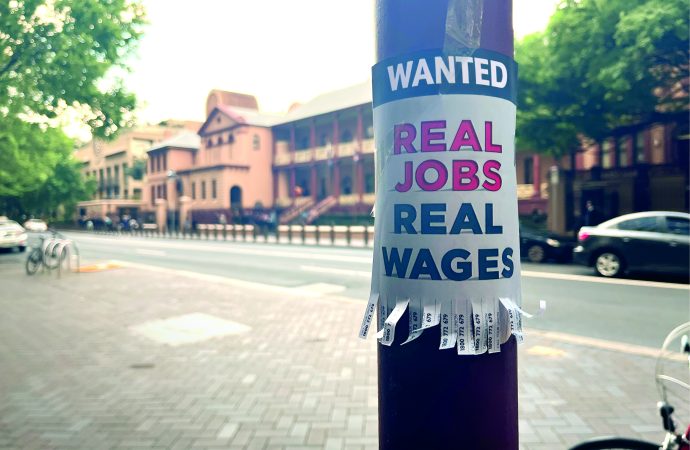

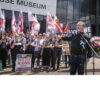


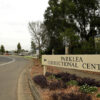




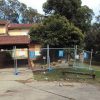

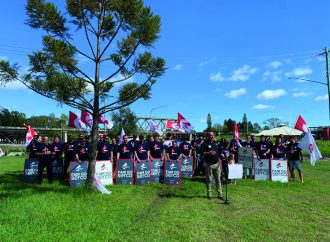
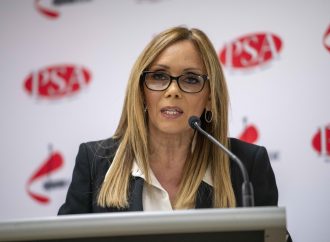


Leave a Comment
Your email address will not be published. Required fields are marked with *